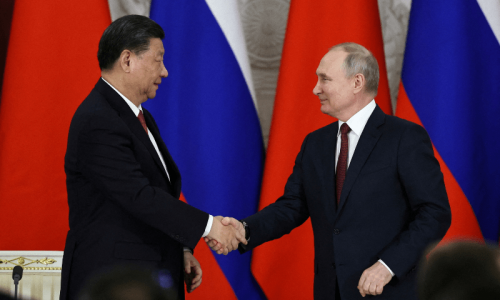IN AWARDING its peace prize to the Organisation for the Prohibition of Chemical Weapons, the Nobel committee has recognised more than 16 years of difficult, dangerous and largely unsung work and one of the greatest success stories in the long, patchy history of multilateral efforts to make the world a safer place.
Before the Syrian conflict thrust the OPCW into the spotlight, it had largely laboured in the shadows. Its squat modernist headquarters in The Hague, a few yards from the war crimes tribunal in the north end of the Dutch capital, is modest and unshowy inside and a far cry from the shining skyscraper inhabited by its much better-known nuclear cousin in Vienna, the International Atomic Energy Agency.
The absence of publicity has helped the OPCW go about its business with a quiet but striking efficiency. Since its founding in 1997, it has overseen the elimination of over 80 per cent of the world’s declared chemical weapons stocks, starting with a bunker full of mustard gas and arsenic-based chemicals left behind by the communist regime in Albania.
The entire stockpiles of India and South Korea have also been destroyed, as well as almost all of Muammar Gadhafi’s stocks in Libya, and well over 90pc of the vast US arsenal. Russia’s âAi an ever bigger relic from the cold war âAi is two-thirds of the way to oblivion, and the OPCW is working on dismantling weapons left behind by Japan’s wartime occupation of China.
In terms of disarmament it is one of the world’s biggest achievements. Almost a century ago, in the trenches of the first world war, chemical munitions threatened to be the harbingers of an awful future. Saddam Hussein’s use of them against Iran and then against Kurdish civilians in Halabja in 1988 were a reminder of their indiscriminate nature, as were the haunting pictures of rows of white-shrouded corpses of children after the attacks in Ghouta, Damascus, in August.
The OPCW mission to Syria is the most dangerous its inspectors have undertaken, as they are operating in the middle of a war zone, but their work has always been perilous. High explosives and nerve agents are a volatile mix. A mustard gas shell exploded in the first operation in Albania, and missiles being cut up in the US have sprayed out nerve agent.
But the Syrian mission is also a reminder of the truly international nature of the agency. The 20 inspectors in the first team are drawn from more than a dozen countries. Apart from 2002, when Bush era neo-conservatives hounded out the then Brazilian director general Jose Bustani because of his efforts to reach a separate disarmament agreement with Iraq, the OPCW has for the most part managed to stay out of global politics and retain the confidence of east and west, north and south.
The Nobel peace prize will now serve to turn up the pressure on the half-dozen nations which are still not party to the chemical weapons convention: Israel, Egypt, North Korea, Burma, Angola and South Sudan. If the award pushes any of them into joining and disarming, it would crown this as one of the Nobel committee’s best decisions.
By arrangement with the Guardian











































Dear visitor, the comments section is undergoing an overhaul and will return soon.